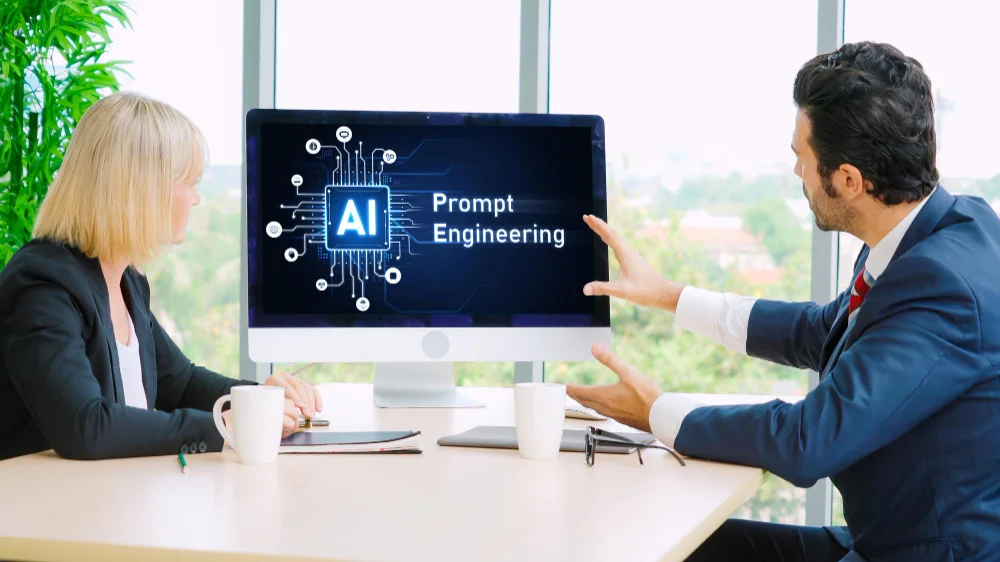The AI and ML integration signifies efficiency and creativity in the dynamic domain of corporate software. Leading provider of HR and finance solutions, Workday has advanced the potential of AI and ML while also redefining:
- Talent management,
- Predictive analytics, and
- Operational workflows.
Additionally, AI and ML integration can have significant impacts across various aspects of business operations. Studies show that companies using AI-driven insights can reduce their operational and administration costs by 10% to 40%.
Workday’s approach to integrating AI and ML goes beyond automating tasks. It helps businesses understand customer behavior and market trends better.
Furthermore, by using these technologies, Workday helps businesses offer personalized experiences and tailor their services more effectively. Moreover, according to a report, AI and ML are driving global AI-based personalization market growth at almost 13% CAGR.
Workday continues to lead this technology revolution as companies come to understand the revolutionary power of AI and ML integration. The company innovates constantly to address the changing demands of contemporary businesses.
This article explores in greater detail how Workday’s use of AI and ML establishes standards for operational efficiency in the digital age.
Workday’s Commitment to AI and ML Integration

Workday is a leader in enterprise software, known for making HR and financial management easier through cloud-based solutions. Their platforms are used worldwide across different industries, helping businesses streamline operations and work more efficiently.
Workday’s Journey into AI and ML:
Workday started exploring AI and Machine Learning to give businesses better insights and smarter tools for decision-making. They saw the potential early on and began integrating these technologies into their systems. As a result, this move changed how companies could use data to improve their processes and services.
How Workday’s Investment in AI and ML Has Grown
In recent years, Workday has gone even further with AI and ML integration. They’ve expanded beyond basic features to include advanced capabilities like natural language processing and predictive analytics. These upgrades help businesses automate tasks, manage resources more effectively, and predict future trends accurately.
As Workday continues to invest in AI and ML, they’re not just keeping up, they’re setting new standards in enterprise software. Furthermore, their commitment to innovation means they’re always finding new ways to help businesses work smarter and achieve more.
Let’s look at how Workday is using AI and ML integration to change:
- Predictive analytics,
- Talent management, and
- Operational workflows.
Impact on Predictive Analytics: AI and ML Integration

Workday taps into AI and ML to make predictive analytics super smart. These technologies help Workday analyze tons of data lightning fast, spotting patterns and trends that humans might miss. Imagine it like having a crystal ball for business decisions.
Take hiring, for example. Workday uses predictive analytics to forecast which candidates are likely to succeed based on past data. Moreover, it’s not just about hiring, though.
They also predict things like:
- When equipment might need maintenance, or
- How sales might change based on market trends.
It’s like having a personal fortune teller for your business operations.
Businesses using Workday’s predictive analytics powered by AI and ML integration see big benefits. They can make smarter decisions faster, which means less guessing and more precision in planning. Plus, it helps them stay ahead of the game by predicting future needs and trends.
Enhancing Talent Management

AI and ML integration plays a crucial role in talent management at Workday, acting like super helpers that analyze data to match the best people with the right jobs. These technologies improve decision-making by predicting future needs and identifying top performers.
Thus, making talent management more efficient and insightful. In short, it’s like having a team of talent experts who can see into the future of your workforce.
Specific Features and Tools within Workday’s Platform
- Smart Matching: Matches skills and experience to job requirements seamlessly.
- Personalized Learning Paths: Moreover, It suggests training and development based on individual needs.
- Succession Planning: Additionally, It identifies potential leaders and plans for future roles.
At Workday, AI and ML integration is not just a tool, they’re catalysts for transforming how businesses nurture and grow their talent pool. These technologies enable organizations to make smarter, more informed decisions that drive long-term success and employee satisfaction.
Improving Operational Efficiency

AI and ML are Workday’s “magic wands” for accelerating operations. They automate repetitive tasks, so teams can focus on more important stuff. Plus, they analyze data quickly, finding better ways to do things.
Efficiency Gains and Cost Savings Achieved by Workday’s Clients
Workday’s clients see huge benefits from this tech. They save time and money because processes are faster and more accurate. For instance:
- Netflix, used Workday to streamline its HR processes, resulting in significant operational efficiencies and cost savings.
- Another example is Unum, a leading insurance provider. They improved their operational efficiency by using Workday’s AI-driven analytics to reduce manual work and enhance data accuracy. Thus, saving millions of dollars annually.
These examples show how powerful AI and ML integration can be in transforming business operations. With such tools, companies can achieve more with less effort.
Challenges and Considerations of AL and ML Integration

AI and ML integration in enterprise software comes with its own set of challenges. Here are some of the challenges.
Common Challenges in AI and ML Integration in Enterprise Software:
- Data Quality and Integration:
- Certify that AI and ML algorithms have access to clean, well-structured data.
- Moreover, the complexity of integrating data from various sources and systems.
- Skilled Personnel:
- Difficulty in finding and retaining experts who can develop and maintain AI and ML systems.
- Additionally, there is a need for ongoing training and skill development for existing staff.
- Data Privacy and Security:
- Concerns about protecting sensitive information from potential breaches.
- Furthermore, implementing robust security measures to safeguard data.
- Cost and ROI:
- High initial costs associated with implementing AI and ML technologies.
- Significant time is required to see returns on investment. Thus, making it a challenging sell for some stakeholders.
advansappz’s Approach to Overcoming AI and ML Integration Challenges:
While the challenges of AI and ML integration in enterprise software can seem daunting, having a strategic partner can make all the difference. This is where advansappz steps in. Here is how advansappz helps to overcome these challenges.
- Thorough Data Audit:
- Firstly, advansappz starts with a comprehensive audit to certify all data is clean, accurate, and well-organized.
- They identify and rectify any data quality issues before implementation.
- Advanced Integration Techniques:
- Using sophisticated tools and methodologies, advansappz integrates data from multiple sources into a unified system.
- As a result, this integration ensures seamless data flow and accessibility for AI and ML applications.
- Comprehensive Training:
- advansappz provides in-depth training programs to upskill your team, certifying they are well-equipped to manage AI and ML systems.
- Additionally, they offer ongoing support and updates to keep your team informed about the latest advancements.
- Robust Security Measures:
- They implement strong cybersecurity protocols to protect sensitive data from breaches.
- Moreover, they provide regular security audits and updates to ensure data remains secure.
- Scalable Model:
- advansappz works on a scalable implementation model. Thus, allowing you to start small and expand as needed.
- As a result, this approach helps manage costs effectively and ensures quicker returns on investment.
Conclusion: AI and ML Integration
Workday’s ongoing investment in AI and ML integration is transforming enterprise software by setting new standards in efficiency and innovation. These technologies streamline processes, improve decision-making with predictive analytics, and optimize talent management.
Thus, providing businesses with significant cost savings and improved accuracy. Companies using
Moreover, workday’s AI-powered solutions can automate repetitive tasks, gain valuable insights, and certify continuous development through personalized learning paths. As AI and ML technologies evolve, they will play an even more crucial role in business operations.
Lastly, workday’s leadership in this field positions businesses to adapt to future challenges and opportunities. Therefore, maintaining a competitive edge and driving innovation in a rapidly changing landscape.
FAQs about workday’s AI and ML integration
- How does Workday ensure data privacy and security when using AI and ML?
Workday takes data privacy and security very seriously. As a result, they implement strong security measures to protect sensitive information. This includes regular security audits and updates to safeguard data from breaches.
- How can AI and ML integration improve talent management in businesses?
AI and ML can greatly improve talent management by automating the process of matching candidates to job roles based on their skills and experience.
- How does AI and ML integration impact customer service in businesses?
By anticipating client demands, personalizing interactions, and automating answers to frequently asked questions, AI and ML can significantly improve customer service. Chatbots with AI capabilities can offer immediate assistance, and machine learning algorithms can evaluate client information to deliver customized suggestions and fixes.
- What industries can benefit the most from AI and ML integration?
AI and ML can benefit a wide range of industries, including healthcare, finance, retail, manufacturing, and more.
- How does AI and ML integration affect the scalability of a business?
AI and ML integration can significantly improve a business’s scalability. By automating repetitive tasks and improving data analysis, these technologies allow businesses to handle larger volumes of work without a proportional increase in resources.












